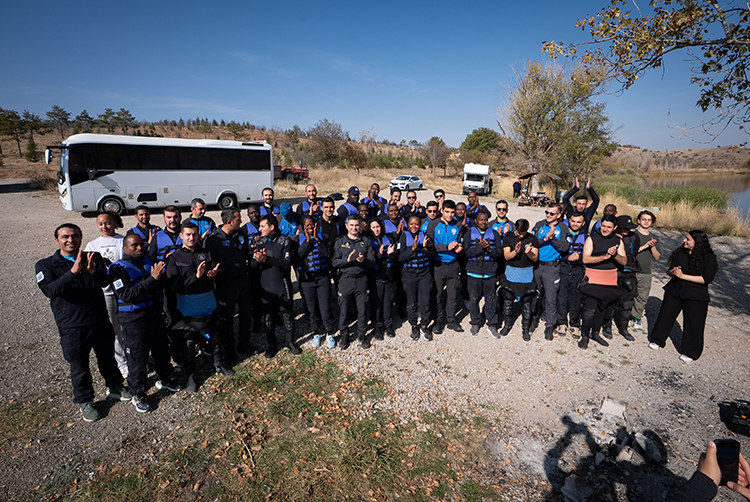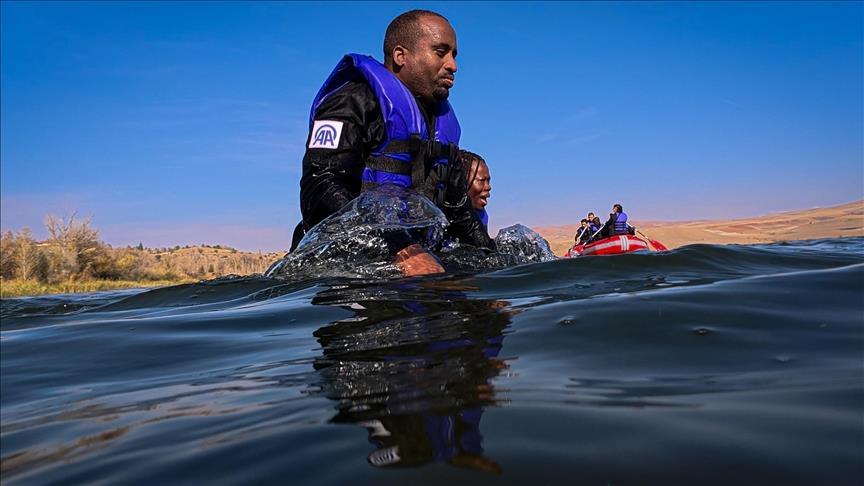The training sessions, which include 9 AA journalists, and 15 foreign journalists from nine different countries—Djibouti, Tunisia, Senegal, Niger, Cameroon, the Democratic Republic of the Congo, Gabon, the Republic of Guinea, and Chad—provide information on how journalists working in disasters such as war, fire, flood, and earthquake should act under difficult conditions, both theoretically and through practical applications.
During the first six days of war journalism training, participants received instruction from experts in the field on “war journalism experience sharing,” “protection from FPV drones,” “self defense,” “war photojournalism,” “war psychology,” “nutrition and hygiene in emergency situations,” and “persuasion strategies.”

“Survival in water” course at Kesikköprü Dam
Trainees taking a “survival in water” course at Kesikköprü Dam in the Bala district of Ankara today entered the dam lake after receiving theoretical information and underwent practical training on how to survive in water during their missions.

Ambulances and “frogmen” were on standby throughout the training period for trainees who were given detailed information about the risk of hypothermia resulting from falling into water, especially in cold weather.

“We are showing them how they can protect themselves under limited conditions.”
Commissioner Özkan Sukas, a war reporting instructor serving as a seaman at the Seaport Branch Directorate of the General Directorate of Security Protection Department, said that war journalism training participants are trained to survive in difficult conditions when stranded at sea.

Sukas stated that reporters will benefit from survival in water training in war zones, saying, "They may encounter situations in water, at sea, in the ocean, anywhere. In this sense, they will not always encounter fully equipped ships or fully equipped devices. The war zone is well known; we are showing them how to protect themselves under the most limited conditions there. We are actually introducing, teaching, and showing them how to wait for help while remaining completely motionless on the water, even when there are no supplies, or how to sustain their lives there entirely."

Among the participants was Berkan Çetin, an AA photojournalist based in İzmir, who explained that during the training process, they tested their resilience in situations of war, disaster, and emergency, while also learning how to deliver reliable news safely.

Iluku Lokombe, a participant from the Democratic Republic of Congo, expressed her belief that the lessons would be very useful in the field and thanked the institutions that organized the training.
